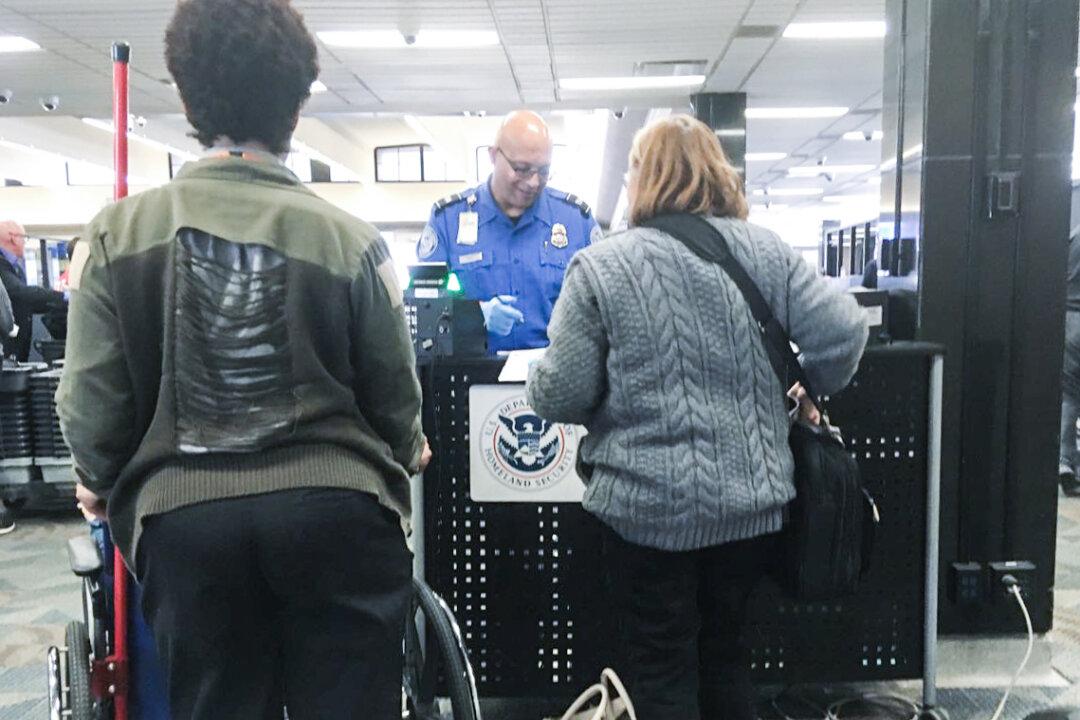While a number of media outlets have been raising alarm with reports of chaos at airports amid a partial government shutdown, the Transportation Security Administration (TSA) said there has been no impact on airport security and average wait times, and only a slight uptick in call-out sick rates compared to a year ago.
An agency spokesperson said in an emailed statement to The Epoch Times that TSA data shows approximately a 1 percentage point increase in officers calling in sick while they are not getting paid.




